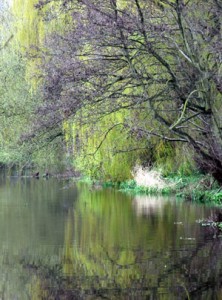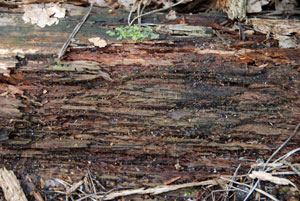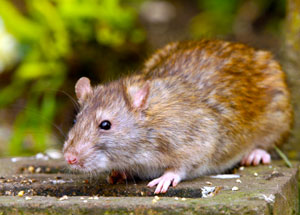Ecosystem Services

We are all dependent on ecosystem services even if we are not quite sure what they are. At the most basic of levels, early humans benefitted from the products of nature (fruits and seeds to eat, animals to hunt) - that is, food or provisioning . Shelter from the harsher aspects of climate and weather was also needed and provided; be it by the canopy of woodlands and forests, or the branches and other materials in woodlands used to make a simple shelter.
Ecosystem services permeate every aspect of our lives. Take soil, for example ‘Where would we be without fertile soil ?’ Obviously fertile soils provide us with the best conditions for our agricultural crops and for maximising growth in our greenhouses and orchards, but beyond that soil has many important functions. The organic material of the soil, humus, can absorb and retain water. It plays a vital role is the regulation of water run-off. If water enters the soil, then it may make its way to underground aquifers, permeating through porous rocks and being filtered and purified as it does so (another ecosystem service). If soil is lost or degraded, then flooding is more likely. The humus / organic material in the soil also functions as a massive store of carbon, which is probably greater than the total amount in the Earth’s atmosphere. Yet, we are currently allowing soils and their carbon stores to be degraded.
 The microbial population of the soil is busy recycling nutrients from the dead and decaying bodies / products of plants and animals, so that these nutrients can be used over and over again. If it were not for the activities of detritivores and decomposers, we would be ‘knee-deep’ in dead bodies, animal waste, dead leaves and dead wood. A vast range of organisms – from saproxylic beetles to mites, fungi and bacteria - breaks down all of this material. If the activity of these ‘recyclers’ is interrupted then things can go disastrously wrong.
The microbial population of the soil is busy recycling nutrients from the dead and decaying bodies / products of plants and animals, so that these nutrients can be used over and over again. If it were not for the activities of detritivores and decomposers, we would be ‘knee-deep’ in dead bodies, animal waste, dead leaves and dead wood. A vast range of organisms – from saproxylic beetles to mites, fungi and bacteria - breaks down all of this material. If the activity of these ‘recyclers’ is interrupted then things can go disastrously wrong.
In many parts of Asia, the cow is regarded as a special animal. The cows supply milk and are used as ‘beasts of burden’ but generally are not eaten by humans. When they die, the natural and traditional disposal method has always been the feeding of vultures.
These cows are not slaughtered but tend to work to the end of their lives – and in recent times, they have been kept ‘productive’ by the administration of the drug diclofenac – to offset arthritis / joint pain etc. The drug was cheap, effective and readily available. However, when the animals finally died, their flesh contained significant quantities of diclofenac – which the vultures ingested. Unfortunately, asian Vultures are poisoned by small quantities of this drug – their kidneys fail. Populations of some vulture species have fallen by more than 90%.
What has been the consequence of the loss of these birds?
 The carcasses of the cows that used to be stripped bare quickly by the vultures, now they lie rotting for days or weeks, acting as reservoirs of microbial disease – contaminating drinking water supplies and the environment in general.
The carcasses of the cows that used to be stripped bare quickly by the vultures, now they lie rotting for days or weeks, acting as reservoirs of microbial disease – contaminating drinking water supplies and the environment in general.- Feral dogs feast on the remains, and their numbers have increased. Unfortunately, feral dog bites are the cause of many cases of rabies – and many of these cases are in children.
- Rat populations have also increased, and rats contribute to the spread of disease.
- There have been cultural effects, for example, the Parsi have specialized rituals for the dead. The dead body must be placed in a Tower of Silence – where vultures consume the body and liberate the soul. The sun bleaches and whitens the bones, which are eventually disposed of (with the help of lime) in an ossuary pit. These ancient customs are now under threat - because of the dramatic fall in vulture numbers.
So it is that small (and sometimes, well-intentioned) changes can have far reaching effects. On a different scale (to the use of an anti-inflammatory drug), the extraction of hardwoods from tropical forests leads to
- soil erosion,
- reduction in biodiversity and
- the loss of a carbon sink.
Such destruction was noted in India in the first decade of the twentieth century by one of the Imperial Forest Botanists : Henry HaselFoot Haines. He commented that ” …..the result of the denudation is that most of the streams become nearly dry early in the dry season, while there are violent torrents in the rains, only fordable with danger. The effects of excessive grazing and other destructuve agencies is well seen ……..” Vast areas of these vital tropical / rain forests have been lost. The rain forests have often been described as the 'lungs of the planet' - using carbon dioxide in the photosynthetic process and releasing oxygen to replenish the atmosphere.
 In the UK, many woodlands and forests have been 'lost' either to the short term need for timber or animal husbandry. In places, natural woodland has gone and been replaced by peatland, partly due to climate and human activities.
In the UK, many woodlands and forests have been 'lost' either to the short term need for timber or animal husbandry. In places, natural woodland has gone and been replaced by peatland, partly due to climate and human activities.
In our towns and cities, many of our gardens have been concreted and paved over (for off-road parking) or covered with decking, so the ground available for the absorption of rain water is reduced – so the possibility of flash flooding increases.
We are all dependent on ecosystem services – for food, clean water, biomass for energy, pharmaceuticals, bees for pollination, waste removal and decomposition, nutrient cycling and recreational experiences (walking through woods, climbing a tree or appreciating a countryside view) and it is important to consider the effects of our current life style on these vital services and natural eosystems.
Comments are closed for this post.

[…] of pollutants and the cooling effect of trees are further examples of how nature helps us – ecosystem services . Trees also soften what can sometimes be the ‘harsh’ or brutalist architecture of […]
The benefits of trees in the urban landscape | Woodlands.co.uk
11 November, 2016